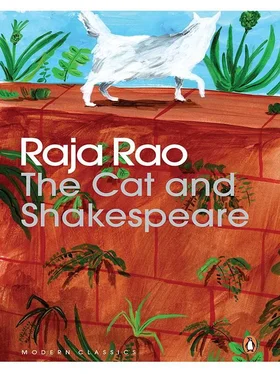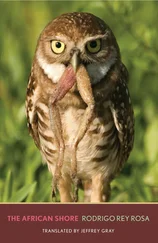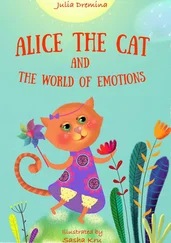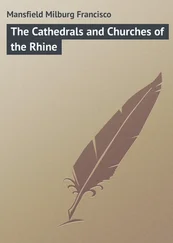Rao Raja - The Cat and Shakespeare
Здесь есть возможность читать онлайн «Rao Raja - The Cat and Shakespeare» весь текст электронной книги совершенно бесплатно (целиком полную версию без сокращений). В некоторых случаях можно слушать аудио, скачать через торрент в формате fb2 и присутствует краткое содержание. Год выпуска: 2014, Издательство: Penguin, Жанр: Современная проза, на английском языке. Описание произведения, (предисловие) а так же отзывы посетителей доступны на портале библиотеки ЛибКат.
- Название:The Cat and Shakespeare
- Автор:
- Издательство:Penguin
- Жанр:
- Год:2014
- ISBN:нет данных
- Рейтинг книги:4 / 5. Голосов: 1
-
Избранное:Добавить в избранное
- Отзывы:
-
Ваша оценка:
- 80
- 1
- 2
- 3
- 4
- 5
The Cat and Shakespeare: краткое содержание, описание и аннотация
Предлагаем к чтению аннотацию, описание, краткое содержание или предисловие (зависит от того, что написал сам автор книги «The Cat and Shakespeare»). Если вы не нашли необходимую информацию о книге — напишите в комментариях, мы постараемся отыскать её.
The Cat and Shakespeare — читать онлайн бесплатно полную книгу (весь текст) целиком
Ниже представлен текст книги, разбитый по страницам. Система сохранения места последней прочитанной страницы, позволяет с удобством читать онлайн бесплатно книгу «The Cat and Shakespeare», без необходимости каждый раз заново искать на чём Вы остановились. Поставьте закладку, и сможете в любой момент перейти на страницу, на которой закончили чтение.
Интервал:
Закладка:
Yes, the British boils worked. Some even said the infection was carried back by soldiers from Benghazi. (Where there’s no water in the air, the skin swells, avid for any available humidity, is the immediate explanation of Govindan Nair. He has an explanation, as you see, for everything. And every occasion is Serious, intelligible, and final). That night, to come back to my British boils, I was up and hunting my boils as one hunts lice in a girl’s hair. I must tell you frankly: I liked it all — just as the girls like lice being killed, there’s an acute sense of pleasure when the two nails rub against each other, and the chit sound emerges. The louse is well and happily dead. As a child I also liked the sound of lice being killed in my hair. It made you feel life was worth something. So that when the British boils came, I just lay down and counted all of them towards the early morning. There were some forty-four — small and big, red, pink, and white. When they burst I took away the pus, carefully folded it all up in cotton wool, and put it in a corner. When I woke towards morning ants and lizards were both at it. They were having a feast.
I could hardly walk now. When I sat up (for this happened constantly with me, whenever I needed him but never asked for him, there would be Govindan Nair), there he was jumping over the wall. His son Modhu had a cough, and this had kept Govindan Nair awake the whole night; so, as he could not go to sleep, he came for a chat. ‘My son will bring my coffee here. Meanwhile let’s bark some nonsense.’ That’s how he always talks.
‘Ah,’ I said, and showed him the British boils. He looked at the lizards and their feed and said, ‘Chee-chee, get away,’ as if they were dogs. For him the whole world was one living organism. Everybody — every thing — understood speech. For him every thing was in masculine gender. He had no verbs in his tongue.
So the British boils came in for close scrutiny. He knew immediately what it was. He knew every thing for he was so concerned with every thing. Once he talked so much on manure that an agricultural expert asked if he was a professor at the local college. Just the same way he talked of the twenty-three types of Enfield guns. Or for that matter of boils. Two cups of coffee were handed down the wall. You just saw hair and hand and Govindan Nair brought in the coffee. The sun was up and the light played on his head. ‘Ah, you big British boil,’ he said, and laughed.
‘Let’s drive the British out,’ he declared, and after a quarter of an hour’s silence — during which he did nothing but play with his toenails — he added: ‘And now for the fight.’ In half an hour he had been to Narayan Pandita Vaidyan. The medicine smelled disgusting, like horse dung. ‘To fight evil you must use evil,’ he assured me. I swallowed the paste and fell on the bed exhausted. The Lord knows how much pus must have eked itself out. Shridhar, Govindan Nair’s second son, came in again and again, to inquire if Uncle wanted anything.
Then I woke up so long afterward. Where was I? The definition of Truth is simple — you wake up and you are in front of Truth.
For when I woke up I thought I saw someone. But actually it was nobody. It was as if Govindan Nair was there when he was not there but yet he was truly there: one can be and not be but be, and where one is one cannot be seen, for light cannot see light and much less can light see the sun.
So when I woke up and, frightened, said: ‘Who’s there?’ I wanted to see something on the chair in front of me. But actually I saw Govindan Nair hiding behind the door. He went to the window (for he was munching tobacco) to spit out and said: ‘I am Govindan Nair.’ His son Shridhar stood by him brave and well protected. But what had happened in all truth? What, I ask of you?
The facts are there. Shridhar had not been very well, and Narayan Pandita Vaidyan had ordered complete rest, with an oil bath towards noon. So that when Govindan Nair returned for his midday meal (his office was between the Secretariat and the General Hospital, on the Statue Road — a low-down-looking shed with sacks and a huge red-coloured scale in the middle, and men at the desk examining ration cards — and above was his august office), Shridhar usually woke up, held his father’s coat and hung it on the rack. Then he took a towel and held it forth for his father to wipe his feet. Meanwhile his brother Modhu would return. Modhu preferred to eat in the kitchen and to have the meal quickly finished and over — so he could run back to school and have a bout of football. Today, however, he did not return — he had some schoolwork. (At such times he usually ate something in the coffee shop opposite). Shridhar took the towel back to the bathroom and went and lay down on his bed.
Govindan Nair was at his meal, and suddenly he said: ‘And, son, what about our delightful neighbour? Is he still emptying his bowels? Has the horse-dung-smelling purge worked?’ The son answered: ‘Father, I have not been to see him since eleven o’clock, that is, since I started on the oil bath.’ ‘And you,’ Govindan Nair said to his wife, ‘and you, my lady, I imagine you are too virtuous to find out whether our friend is living or dead. I fear the medicine was very strong. Ah, our Vaidyans! 5They know how to purge a calf but not a delicate Saraswath Brahmin. Shridhar, go and see.’
It was a very hot day in March. No, it was actually April, getting on to May. The sun was indeed very hot. The bilva tree seemed more thorn than leaf, more sun than air. Shridhar, so I learned later, jumped down the garden wall and entered my house from the backyard. He saw me, so he said, lying flat, my face to one side, my latrine bucket gone rolling on itself, and lying handle out in a corner. I was obviously unconscious. Going to the latrine, with the sun so hot, and I so weak, I must have tumbled and fallen against the threshold. I could not reach the bathroom. ‘Uncle is dead, Uncle is dead!’ shouted Shridhar in terror, running back to the garden wall. Govindan Nair, so I was told, jumped like a three-year-old heifer, washed his hands, and stood beside me. He touched me and felt my pulse. He carried me to my bed. Shridhar fanned me. His mother stood at the wall trying to learn what was happening. Govindan Nair jumped back across the wall. He says nothing more. What did he bring? — The chair was empty. Why are they all in the next room? I wondered. Shridhar suddenly came in, took a fan and started giving me breeze. From the window I could see Tangamma handing a tumbler of coffee — so hot, she had a towel around it — to Govindan Nair. ‘Sir, here is your nectar,’ he said. ‘Everybody has his nectar. Mine is tobacco juice, and yours the juice of a blackberry. At the ration department we are told we live on thirty ounces of rice per person. I solemnly declare, we live on nectar. Man does not live on terrestrial viands. He lives on the fruits of heaven.’ And he laughed as he propped me up in bed and, holding me with one hand, gave me coffee with the other. Shridhar was still fanning. Tangamma was standing by the wall playing with a trefoil of bilva. Where was I? Where was my wife? Does bilva make nectar, I wondered. I must ask Narayan Pandita Vaidyan. Suddenly I had to go to the latrine again. ‘The bowels are a tremendous responsibility of man, three hundred miles of guts hold a few handfuls of chemical compost. And this little chemical mixture makes or unmakes the stability of man. Funny, isn’t it?’ Govindan Nair said this, and stood by the door to the courtyard. ‘Call me, brother, when you want water. Water is our best protector against sin. To smell is sin. To do is no sin. To gulp is sin. To purge is bounty. To die is fanciful. Reality is when you die really. Shridhar’s death is my joke. When you fall unconscious they say you are dead. In fact where were you, brother, when Shridhar thought you were dead? Were you dead to yourself, my friend? You purge to live. You sleep to die. When sleep is life, where is death? Ha, ha, ha,’ he laughed, keeping me company from outside, while my bowels were pouring down hot liquid. I thought my guts would come out. There’s such innocence in a purged body. Disease is unnatural. Death is natural. To die rightly is to wake and find one has ever been being.
Читать дальшеИнтервал:
Закладка:
Похожие книги на «The Cat and Shakespeare»
Представляем Вашему вниманию похожие книги на «The Cat and Shakespeare» списком для выбора. Мы отобрали схожую по названию и смыслу литературу в надежде предоставить читателям больше вариантов отыскать новые, интересные, ещё непрочитанные произведения.
Обсуждение, отзывы о книге «The Cat and Shakespeare» и просто собственные мнения читателей. Оставьте ваши комментарии, напишите, что Вы думаете о произведении, его смысле или главных героях. Укажите что конкретно понравилось, а что нет, и почему Вы так считаете.












